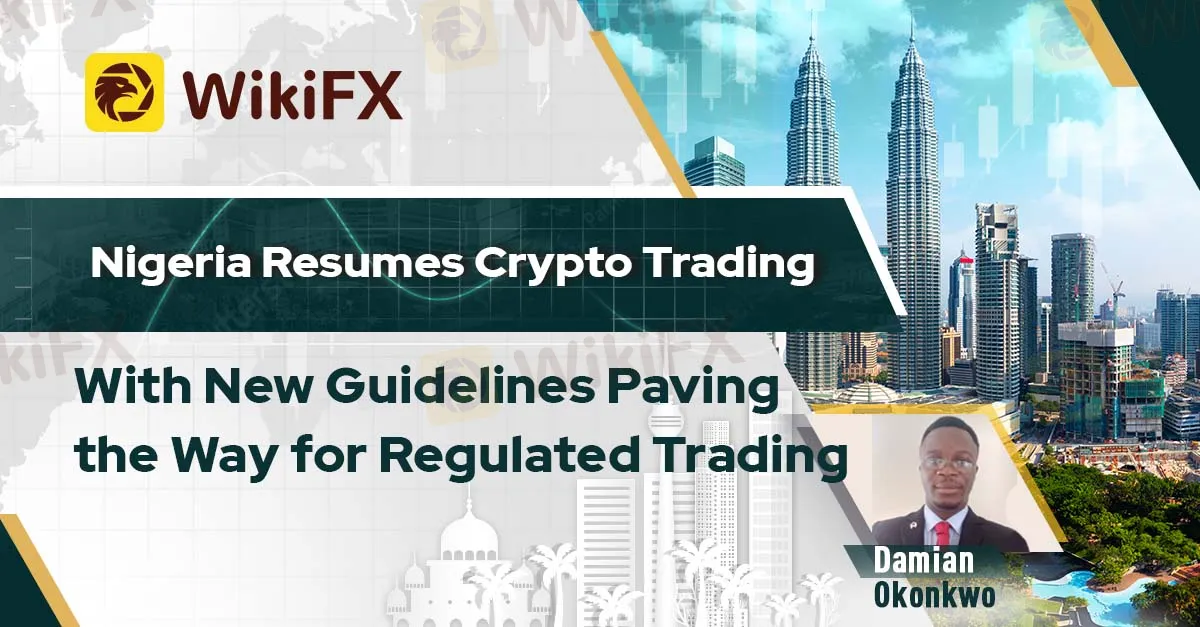Abstract:After a two-year ban that sent shockwaves through the Nigerian crypto community, the Central Bank of Nigeria (CBN) has cautiously reintroduced cryptocurrency transactions with the release of comprehensive guidelines for Virtual Asset Service Providers (VASPs).

By: Damian Okonkwo

Introduction
After a two-year ban that sent shockwaves through the Nigerian crypto community, the Central Bank of Nigeria (CBN) has cautiously reintroduced cryptocurrency transactions with the release of comprehensive guidelines for Virtual Asset Service Providers (VASPs). This marks a significant shift in the country's stance towards digital assets, and its implications for the burgeoning Nigerian crypto market deserve close scrutiny.
Lifting the Ban to Embrace Regulation
The CBN's 2021 ban on cryptocurrency transactions stemmed from concerns regarding money laundering, terrorism financing, and consumer protection. However, the evolving global landscape and increasing domestic interest in crypto prompted a reevaluation. Recognizing the need for regulation rather than outright prohibition, the CBN issued the VASP guidelines, aligning with the Financial Action Task Force (FATF) recommendations and the Securities and Exchange Commission (SEC)'s digital asset regulations.
Key Features of the VASP Guidelines
● Clear Framework for Bank Accounts: VASPs can now open accounts with licensed banks, facilitating fund transfers and settlements for customers.
● Enhanced Risk Management: Banks are mandated to implement robust KYC/AML procedures for VASP clients, mitigating financial crime risks.
● Consumer Protection Focus: The guidelines emphasize transparency and disclosure requirements for VASPs, safeguarding investor interests.
● Central Bank Oversight: The CBN retains supervisory authority over VASPs and banks, ensuring compliance with the regulations.
Opportunities and Challenges
The new guidelines present several opportunities for the Nigerian crypto market. Increased legitimacy and access to banking infrastructure could fuel growth and attract foreign investment. The regulatory framework also provides a foundation for responsible innovation within the digital asset space.
However, challenges remain. The effectiveness of the VASP guidelines hinges on their diligent implementation by both VASPs and banks. Additionally, the continued prohibition of direct crypto trading by banks could limit market liquidity and hamper wider adoption.
Looking Ahead
Nigeria's cautious embrace of cryptocurrency regulation stands as a model for other African nations grappling with similar issues. The success of this approach will depend on the effective implementation of the VASP guidelines, continued dialogue between regulators and industry stakeholders, and the development of a supportive financial ecosystem for digital assets.
Conclusion
While the full impact of the CBN's policy shift remains to be seen, Nigeria's resumption of cryptocurrency transactions under a regulatory framework signifies a significant step forward. This cautious optimism acknowledges the potential of digital assets while prioritising financial stability and consumer protection. The coming months will reveal whether this measured approach paves the way for a thriving and responsible Nigerian crypto market.











